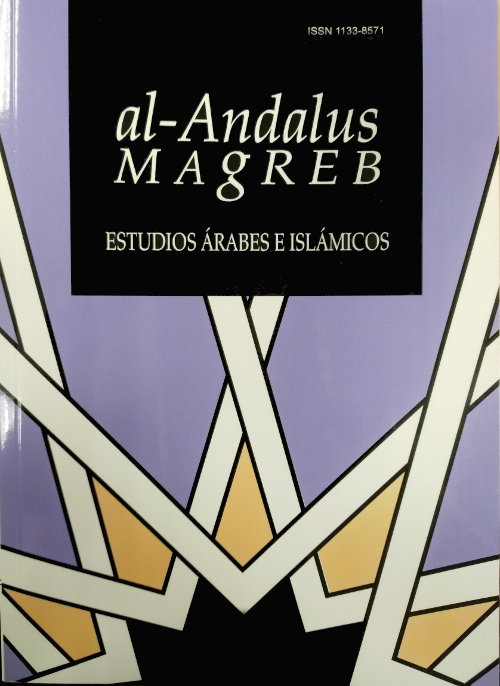The study of Moroccan proverbs as a reflex of cultural polarity

Info
Abstract
In this article we are going to analyze how proverbs, Moroccans in this case, help to give stability to the cultural parameters. More concretely, we will refer to a series of relevant dualities in the Moroccan traditional society like: the public and the private space and the masculine and the feminine roles. As a conclusion we have observed how proverbs work as a maintainer of traditional values in the Moroccan traditional society in which a more radical separation between the public and the private sphere and the masculine and feminine space exists. Those proverbs show a strong link between the public sphere, and the masculine gender on the one hand, and the private space and the feminine gender on the other hand.
Keywords
Downloads
How to Cite
License

This work is licensed under a Creative Commons Attribution-NonCommercial-NoDerivatives 4.0 International License.
Those authors who have publications with this journal, accept the following terms:
a. Authors may retain their copyright and guarantee the journal the right of first publication of their work, which will be simultaneously subject to Licencia de reconocimiento de Creative Commons that allows third parties to share the work as long as its author is indicated. and its first publication this journal.
b. Authors may adopt other non-exclusive license agreements for the distribution of the version of the published work (eg: deposit it in an institutional electronic file) provided that the initial publication in this journal is indicated.
c. Authors are allowed and recommended to disseminate their work through the Internet (eg: in institutional telematic files or on their website) once the manuscript is accepted, which can lead to interesting exchanges and increase citations of the published work. (See El efecto del acceso abierto).
References
EL ATTAR, Bouchta. 1974 . Étude sur la structure des proverbes arabes populaires marocains. (Tesis Doctoral) París : Université de la Sorbonne Nouvelle (Universidad París III).
BEN CHENEB Mohamed. 1905-1907. Proverbes arabes de l'Algérie et du Maghreb recueillis, traduits et commentés. Argel : Publications de l'École des Lettres.
BRUNOT, Louis & Elie MALKA. 1937. “ Proverbes Judéo – Arabes de Fès ”. Hesperis 24, 153– 181.
BURCKHART, John Lewis. 1972. Arabic Proverbs or The Manners and Customs of the Modern Egipcians. Londres: Curzon Press, Rowman & Littlefield.
DĀWŪD, Muḥammad. 1964. Alf maṯal wa-maṯal min amṯāl Tiṭwān. Rabat: al- Markaz al-ǧāmiʕī li-l-baḥṯ al-ʕilmī.
HERRERO MUÑOZ–COBO, Bárbara. 1996. “El Proverbio en dialecto marroquí”. Actas del II Congreso Internacional del Estrecho de Gibraltar. Tomo III. Ceuta, 471–479.
IBN AZUZ HAKIM, Muhammad. 1954. Refranero marroquí. Madrid: Instituto de Estudios Africanos.
MARTÍNEZ DRISIEN, José Antonio. 1952. Lecturas de árabe vulgar: selección de cuentos y refranes; contribución al conocimiento del idioma y folklore de Marruecos. Tetuán: Instituto General Franco de Estudios e Investigación Hispano-Arabe.
MESSAOUDI, Leila. 1987. Proverbes et dictons du Maroc. París: De Lunay; Agadir: Belvisi.
QABBĀǦ, Muḥammad & Muḥammad ŠARRĀDĪ FĀḌILĪ. 1981. Bāqa min al- amṯāl al-Maġribiyyah aw aṣālat al-Maġrib ʕabra amṯāli-hī. Bouquet de proverbes marocains ou l'authenticité du Maroc à travers ses proverbes. Casablanca: Maṭbaʕat Idyāl.
SBIHI, Ahmed & A. BENCHEHIDA. 1930. Proverbes inédites des vielles femmes marocaines , Fez : M. Debayeux.


